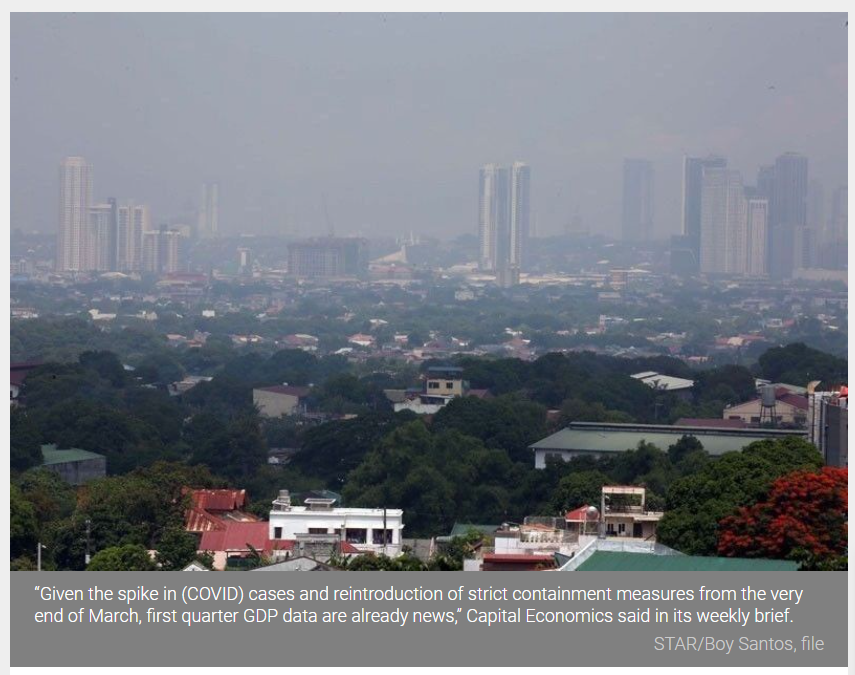Philippines: Q1 GDP to disappoint
MANILA, Philippines — Gross domestic product (GDP) likely inched up 0.8 percent in the January to March period, according to London-based think tank Capital Economics.
“Given the spike in (COVID) cases and reintroduction of strict containment measures from the very end of March, first quarter GDP data are already news,” Capital Economics said in its weekly brief.
“But for what it’s worth, we suspect they will show that the recovery was already running out of steam,” it said.
Last year, the Philippines entered into a recession following consecutive quarters of decline due to prolonged lockdowns to contain the pandemic.
By the second quarter, Capital Economics said GDP is expected to return to contraction phase with a two percent decline, coming from a record 17 percent shrinkage in the same period last year.
“The virus situation has deteriorated significantly, resulting in lockdowns being introduced across much of the country,” the think tank noted.
“While the rise in new cases has started to level off, the situation remains dire and the movement of people is still around 45 percent lower than pre-pandemic levels,” it said.
Capital Economics’ latest forecast supports UK-based Pantheon Macroeconomics analysis that the possibility of a double-dip recession for the Philippines is now more likely than ever.
A double-dip recession is a situation when a recession is followed by a short-lived recovery and then another recession.
Pantheon estimates that first quarter GDP will reach 2.2 percent, only to contract 1.5 percent by the second quarter.
Further, Capital Economics said more rate cuts should be expected later in the year.
The surge in inflation since January has stopped the Bangko Sentral ng Pilipinas from easing further to support the economy in dire need of recovery.
April inflation, however, steadied at 4.5 percent as the uptick in transport and fuel and meat prices was offset by the decline in other food commodities.
Capital Economics said the headline rate will likely remain elevated in the near term before falling back within the BSP’s two to four percent target range.
Nonetheless, it emphasized that the economy is in need of more support as COVID-19 cases have yet to see a significant drop.
Earlier, Capital Economics lowered its 2021 GDP forecast for the Philippines for the second time around.
It now expects the Philippines to grow 7.5 percent from the 9.5 percent projection last month. Its original forecast was set at 11 percent.
While this falls within government targets, this is still smaller than the pre-crisis trend at the end of 2023 – by far the largest gap in the region.
Source: https://www.philstar.com/business/2021/05/10/2097028/q1-gdp-disappoint


 Thailand
Thailand




